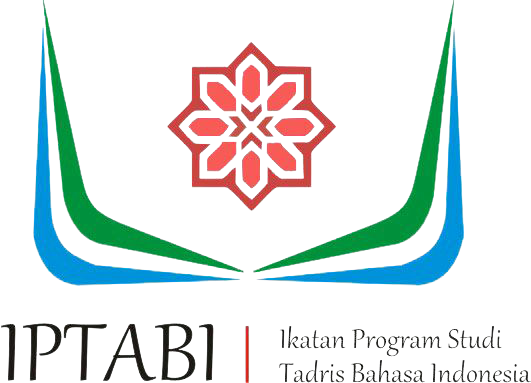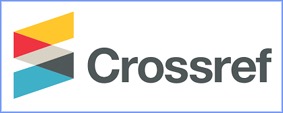Alih Kode dan Campur Kode dalam Pembelajaran Bahasa Indonesia
DOI:
https://doi.org/10.29240/estetik.v4i1.2288Keywords:
Code Switching, Code Mixing, Indonesian Language LearningAbstract
Downloads
References
Bhakti, Wirayudha Pramana. “Pergeseran Penggunaan Bahasa Jawa ke Bahasa Indonesia dalam Komunikasi Keluarga di Slemanâ€. Jurnal Skripta, Vol. 6, No. 2 (2020).
Chaer, Abdul. Kesantunan Berbahasa. Jakarta: PT Rineka Cipta, 2010.
Chaer, Abdul. Linguistik Umum. Yogyakarta: Rineka Cipta, 2012.
Dewi, Resnita. 2020. “Campur Kode dalam Proses Pembelajaran Bahasa Indonesia di SMA Negeri 1 Rantepaoâ€. Jurnal Ilmiah Wahana Pendidikan, Vol. 6, No. 3 (2020).
Kridalaksana, Harimurti. Kamus Linguistik: Edisi Keempat. Jakarta: Gramedia Pustaka Utama, 2008.
Mardian; Fitri; dan Rizki Aspian. “Interferensi Bahasa Daerah dalam Konteks Formal di SMA Kota Singkawangâ€. Cakrawala Linguista, Vol. 1, No. 2 (2018).
Ohoiwutun, Paul. Sosiolingistik. Jakarta: Kesaint Blanc, 2007.
Singarimbun, Masri dan Sofian Effendi. Metode Penelitian Survei (Editor). LP3ES, Jakarta, 2006.
Suandi, I Nengah. Sosiolinguistik. Yogyakarta: Graha Ilmu, 2014.
Sukmadinata, Nana Syaodih. Metode Penelitian Pendidikan. Bandung: PT Remaja Rosdakarya, 2013.
Sumarsono. Sosiolinguistik. Yogyakarta: Pustaka Pelajar, 2017.
Yusnan, Muhammad; Kamasiah; Risman Iye; Harziko; dan Riki Bugis. “Alih Kode dan Campur Kode pada Novel Badai Matahari Andalusia Karya Hary El-Parsia: Transfer Code and Mix Code in Novels Badai Matahari Andalusia Karya Hary El-parsiaâ€. Uniqbu Journal of Social Sciences, Vol. 1, No. 1 (2020).
Downloads
Published
How to Cite
Issue
Section
Citation Check
License
Copyright (c) 2021 Hizbi Naufal Azis, Laili Etika Rahmawati

This work is licensed under a Creative Commons Attribution-NonCommercial-ShareAlike 4.0 International License.
Authors who publish with ESTETIK : Jurnal Bahasa Indonesia agree to the following terms:
- Authors retain copyright and grant the journal right of first publication with the work simultaneously licensed under a Creative Commons Attribution-NonCommercial-ShareAlike 4.0 International License (CC BY-NC-SA 4.0) that allows others to share the work with an acknowledgment of the work's authorship and initial publication in this journal.
- Authors are able to enter into separate, additional contractual arrangements for the non-exclusive distribution of the journal's published version of the work (e.g., post it to an institutional repository or publish it in a book), with an acknowledgment of its initial publication in this journal.
- Authors are permitted and encouraged to post their work online (e.g., in institutional repositories or on their website) prior to and during the submission process, as it can lead to productive exchanges, as well as earlier and greater citation of published work (See The Effect of Open Access).






